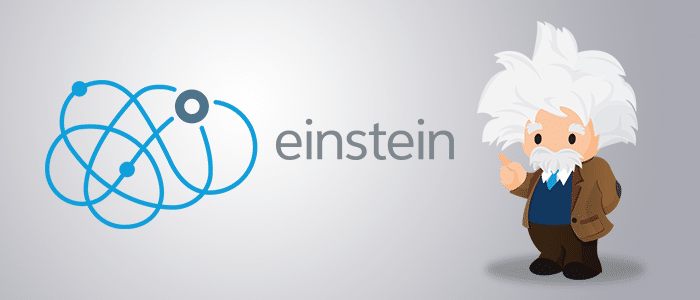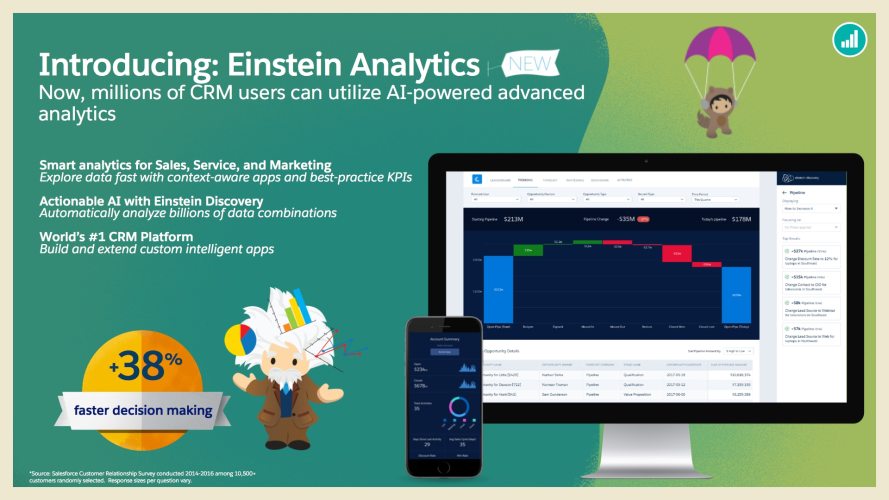
For years, Business Intelligence (BI) and Enterprise Analytics solutions have been providing business users with access to mission-critical data, and for years, these tools have been saying they are going to “kill the spreadsheet”, and improve your business process by doing so. And for years, each and every solution has fallen short of this goal. The truth is that spreadsheets are an incredibly powerful tool because they contain two very core values:
- Flexibility
- Composability
Flexibility in that users have full power of the contents of each cell. The cells can be numbers, text, images, formulas, and they can be arranged in any way the user sees fit. This flexibility ensures that the user is never blocked because they are doing something the original developers of the spreadsheet application could have never predicted.

Millions of Salesforce users have leveraged out of the box operational reports and dashboards to quickly look up their data, understand performance and communicate results. However, with the amount of customer data volume growing exponentially every day, exploring data manually has become a bigger challenge, and analytics has become more important than ever before. It is impossible for anyone to spot every trend, understand every correlation or test every hypothesis by manual data exploration alone. To address this challenge, today we are announcing the launch of Einstein Analytics so millions of CRM users will be able to utilize advanced analytics powered by artificial intelligence (AI). Now companies have a way to empower their sales reps, service agents, marketers and analysts with the insights they need to make every customer interaction smarter, without having to build mathematical models, write algorithms or ask an expert for help.
Einstein Analytics Vs Tableau CRM

Tableau + Einstein = Tableau CRM
In August 2019, Salesforce completed the acquisition of Tableau and marked a new milestone – their largest transaction to date. The press release summarized the event as “the world’s #1 CRM and #1 analytics platform coming together to supercharge customer’s digital transformations.” It was a big addition to the Salesforce ecosystem – $15.7 Billion big.
In evaluating their strengths, the synergies between Einstein Analytics and Tableau are clear. They are both highly regarded analytics platforms. Core to the two products are data integration, preparation, and transformation capabilities. Each product is designed to empower users to explore their data, and drive action and insight and they both have robust training programs to help their user’s sharpen their skills, no matter the stage of their journey (Einstein Analytics Learning Map and Tableau Training). They both enjoy strong community engagement (Trailblazer Community and Tableau Community).
But it is the differences, not similarities, between these products that will make Tableau CRM greater than the sum of its parts.
- For one, Tableau has secured the analytics brand leader position for good reason. This platform is built for all the data-driven creatives out there. The visuals that the Tableau Community produces every day are innovative, impactful, and can be quite stunning (check out the Viz of the Day Gallery).
- While the exploration and visualization agility of Tableau raises the bar for descriptive analytics in the Salesforce ecosystem, Einstein brings predictive and prescriptive capabilities to the table. The Einstein product suite includes functionality in the areas of machine learning (ML), natural language processing (NLP), and computer vision.
- While they both have native integrations available, each tool was built with a different use case in mind. Tableau has a long list of connectors that allow their userbase to join data from disparate sources. While Einstein does support some external connections, it was optimized to interact with data in Salesforce.

Tableau CRM will feature the best of both worlds – any user will be able to leverage the power of Tableau’s viz and the artificial intelligence / machine learning of Einstein across any data source.
The process to merge these two worlds into Tableau CRM is expected to occur in three phases.
- The team is focused on equipping the Tableau user with predictive abilities from the Einstein suite. In the next year, the AI/ML functionality native to Einstein will be brought into Tableau in the form of dashboard extensions, calculations, and bulk predictions.
- The focus will shift towards making the data flow back and forth between the two platforms. That means that Tableau users will be able to access and query Salesforce datasets within Tableau, while also having the ability to write scripts back to Salesforce.
- Over time, every layer of the application will be brought together with the ultimate goal of an end-to-end seamless experience for all users.
Thanks
Jayakrishna..
Resources Articles:
https://www.tableau.com/products/tableau-crm
https://www.salesforce.com/blog/introducing-einstein-analytics-blog/
No comments:
Post a Comment